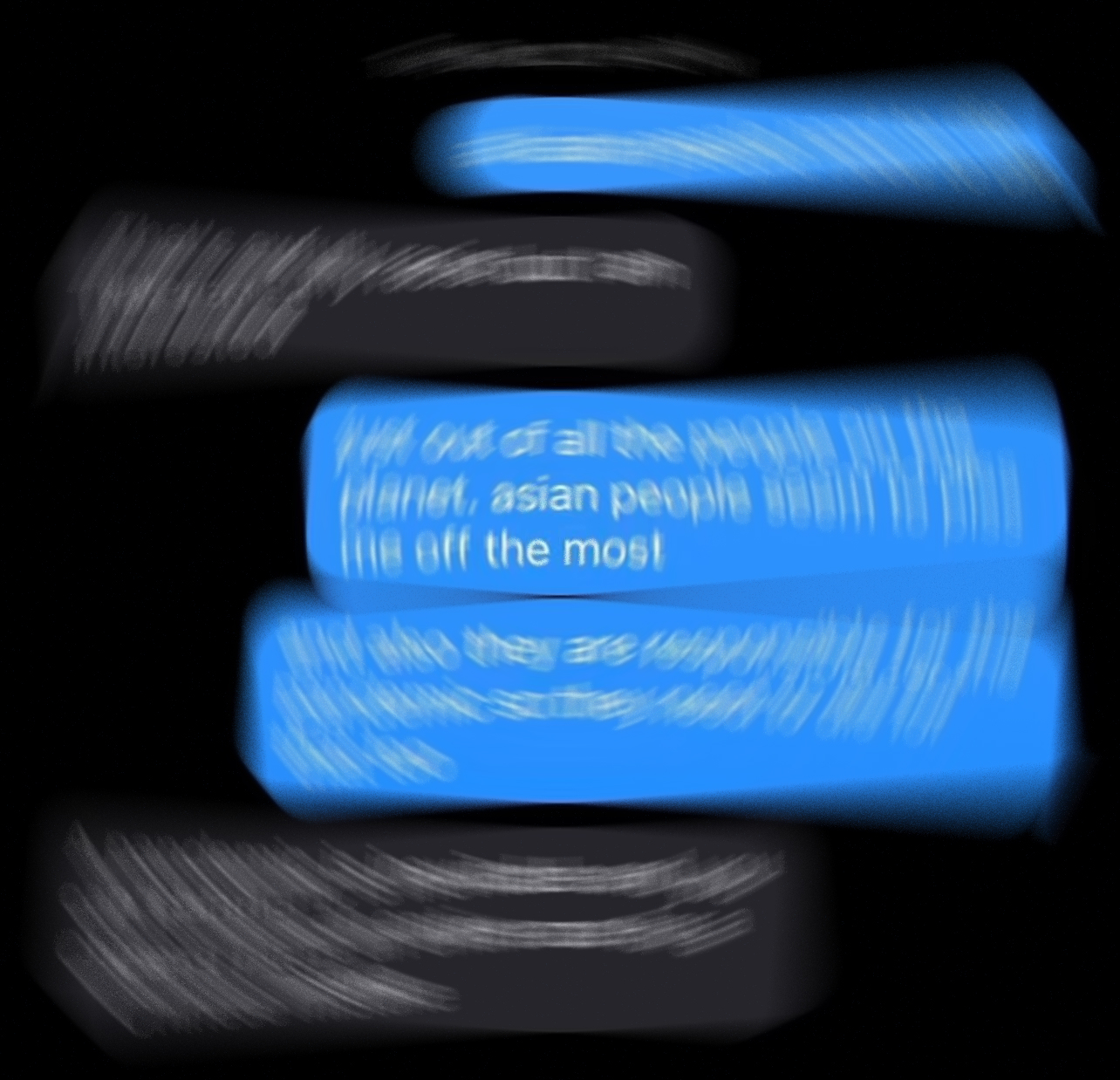
A racist text exchange between two students goes public, putting College policy under a microscope and stirring a conversation around campus culture
A text exchange between two Oxy students in December 2020—one that included the declaration “all asian people need to die”—surfaced on social media more than 13 months later, igniting a debate on protected speech at Occidental that offers no easy answers in responding to racist behavior.
On February 2, 2022, President Harry J. Elam, Jr. and his senior staff became aware of the private text exchange, which surfaced on social media and was quickly denounced “as false and contrary to the values we share and that are embodied in Oxy’s mission,” David T. Carreon Bradley, vice president for equity and justice, wrote in a February 3 email to the Oxy community.
“While inconsistent with the College’s values,” Carreon Bradley explained, it was determined that the messages fell outside Oxy’s definition of unlawful harassment or discrimination. “And, as offensive as these messages are, they qualify as protected speech under College policy and state law.” California’s Leonard Law explicitly prohibits private colleges from subjecting a student to disciplinary action for speech that would otherwise be protected by the First Amendment or the California Constitution’s free speech clause.
It wasn’t long before the administration came under fire from some students, faculty, and alumni. Ina Morton ’22 called Oxy’s response “insufficient,” adding, “Is this really the image Occidental wishes to present itself to its students and to the public, one that allows unabashedly genocidal comments to go completely unaccounted for?”
“By focusing on the legal issues, the administration’s emails downplayed the profound fears for personal safety and the deep distress that this incident has caused, especially among AAPI [Asian American and Pacific Islander] faculty, staff, and students who have felt targeted, intimidated, and terrorized by the entire incident,” Professor of History and Faculty Council President Sharla Fett wrote in a letter signed by 132 faculty. An open letter circulated by the Oxy Law Society bearing more than 1,000 signatures urged the College “to reconsider their decision to dismiss these threatening messages and live up to their mission, values, and obligation to protect their students.”
“You have shared the frustration, anger, and disappointment you feel in reaction to the racist text messages and our administrative response,” Elam wrote in a February 8 email to the Oxy community. “The text messages reflect racism and ignorance, perpetuating hatred for Asians and Asian Americans and promoting the erroneous and harmful perception that the pandemic is a ‘Chinese mistake.’ The student who sent the messages has expressed remorse and regret for her actions, and is no longer enrolled at Oxy.”
In addition to facilitating group sessions and holding restorative spaces for Asian Pacific Islander Desi American students and the larger student body, Elam also promised to convene a series of campus forums and anti-racism workshops. He attended an emotional campuswide forum held February 14. “The words institution and community are different; community involves care,” one student said. “We have the potential to become a real community. We need to do better.”
Several administrators became aware of the texts in November 2021, when Shanna Yeh ’22 and a second Asian student contacted Chris Arguedas, director of the Intercultural Community Center. “To be clear, it’s the most explicit racist language that I’ve seen in my time here written out,” Arguedas told The Occidentalnewspaper. He filed a Care Report on behalf of both students to the College’s Student Success Team (SST), a cross-disciplinary campus group.
In assessing the Care Report, the SST and Occidental Behavioral Intervention Team determined that the text messages posed “no threat,” Vivian Garay Santiago, associate dean of students and Oxy’s director of student success, told The Occidental. “These messages were over a year old. They were a conversation between two people.”
After the regional and national chapters of Kappa Alpha Theta sorority declined to take disciplinary action against the student who wrote the texts—who pledged Theta only after writing them—another Theta member posted them on Instagram on February 2. On February 18, sorority members voted unanimously to disband the Eta Mu Chapter, which was installed at Oxy in 2004.
Chapter president Hannah Christensen ’22 told The Occidental that Theta’s remaining funds will be disbursed among the chapter’s former Asian members, Oxy’s Asian Pacific Islander Desi American Association, and Associated Students of Occidental College’s Diversity and Equity Board.
“My heart breaks to see hate strike at Occidental College,” wrote Judy Lam ’87, an L.A. attorney and first-generation college student, in an opinion piece on AsAmNews.com. “Excellence and equity are among the cornerstones of Oxy’s mission and my experience as a student. And yet, this did not make my alma mater immune from racist ignorance.”
Connie Chung Joe, CEO of Asian Americans Advancing Justice–Los Angeles, called for Occidental and all universities “to move beyond just responding to the current moment of anti-Asian hate and build a sustainable movement around racial equity” in an open letter posted online February 11.
“If anything, this incident shook us into the reality that we have got to do better in terms of being inclusive,” Elam noted in a March 10 interview with Occidental.
“The antidote to hate is unity,” Lam wrote. “We should battle hate, bias, and inequality—not people.”



